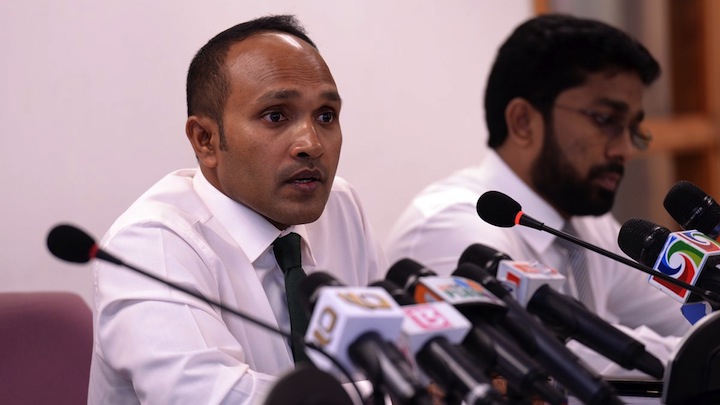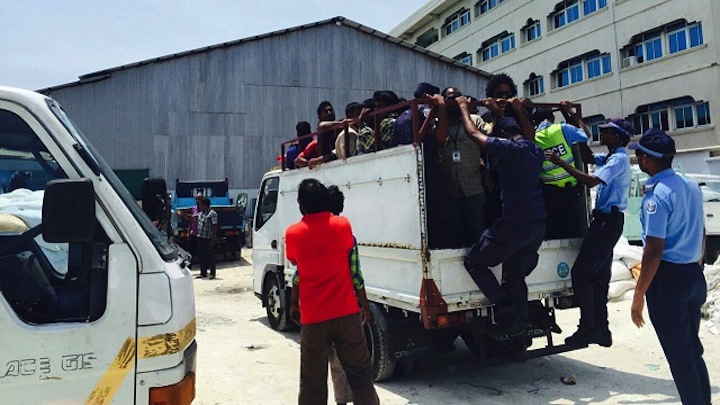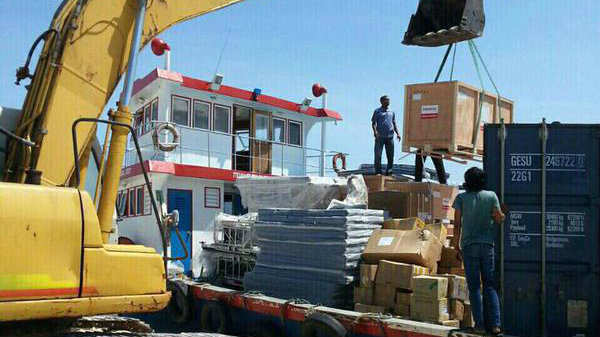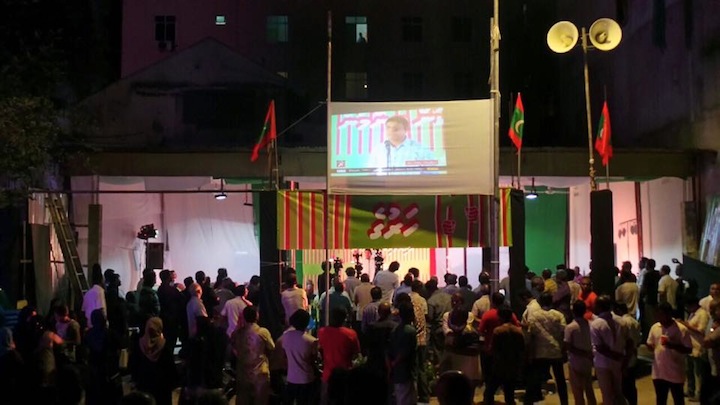Criticism of Islam textbooks from a Western perspective is “inappropriate for the education system of a 100 percent Muslim nation,” Vice President Dr Mohamed Jameel Ahmed said yesterday.
Jameel declared that Islamic sharia and history will be taught in Maldivian schools.
The vice president’s remarks comes after human rights NGO Maldivian Democracy Network (MDN) published a report saying textbooks used to teach Islam promote anti-Semitism and xenophobia, and glorify jihad or war.
The report said only the textbooks made for grade one, two and three, introduced this year, are free from xenophobic narratives.
Criticism of the Islam subject cannot be accepted as “sincere,” Jameel said.
The new school curriculum was formulated to ensure that the Maldives remains an Islamic country, he said, and special focus was given to the Islam subject.
The new Islam syllabus and textbooks will help overcome “challenges” posed by changes the Maldivian society is experiencing, he said.
Punishments prescribed in the Quran must be taught in an Islamic country, Jameel continued, and all Muslims must take pride in Islamic history.
Muslims were the “main architects” of civilisation since the time of Caliph Umar, he said.
Jameel said it is obligatory upon a Muslim people to teach children about the successes of the Islamic civilisation, the challenges it overcame, and wars waged by Muslims in self-defence.
Human rights, freedom of expression, and other fundamental rights guaranteed in the constitution must be exercised within boundaries set by Islam.
The constitution states that Sunni Islam is the state religion and that no law contrary to Islam shall be enacted in the Maldives.
The vice president made the remarks in a meeting with heads of private colleges in the Maldives.
He urged the educators to “work together to maintain the Maldives’ Islamic identity.”
The MDN had said that from fourth grade onwards, “the xenophobic material gradually increases to the point where the radical outweighs the moderate.”
Two whole pages of the eleventh grade textbook were dedicated to “fruits” of jihad, claiming that the ultimate fruit of jihad is martyrdom, for which the reward in Islam is an eternity in heaven, the report read.
The textbooks describe the Ahmadiyya sect as a “plot by the British to destroy Islamic unity,” and says Muslims educated in the West, or Muslims who speak for secularism are considered co-conspirators with the West to undermine Islam.
“Due to the prevalence of these radical ideas, the text books fail to primarily instil a positive interpretation of Islam that is manifested in the [2008] Maldivian Constitution,” the report concluded.





